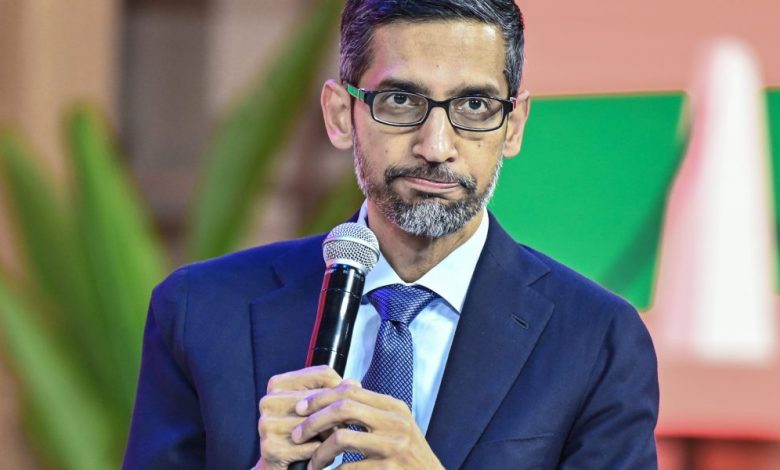Google’s head of ChatGPT competitor Bard assures employees the tool is “not a search”.

Google is feeling the heat – from the employees. As Microsoft’s ChatGPT-powered Bing is making waves and Google’s answer to it, Bard, suffered a “demoralizing” demo last month, workers want to know the game plan involving artificial intelligence and search.
At an all-hands meeting on Thursday, Google employees had the opportunity to bombard CEO Sundar Pichai and Jack Krawczyk, Bard’s head of product, with questions, according to CNBC.
According to CNBC, an employee asked Dory the following question via Google’s internal forum:
“Bard and ChatGPT are large language models, not knowledge models. They’re great at creating human-sounding text, they’re not good at making sure their text is fact-based. Why do we think the big first application should be search, which at its core is about finding true information?”
Krawczyk, who made his all-hands debut, was quick to reply, “I just want to be very clear: Bard isn’t a quest.”
Instead, he said, it’s “a collaborative AI service.”
“The magic we find in using the product is really being that creative companion that helps you spark your imagination, explore your curiosity, etc,” he said. But he added, “We can’t stop users from using it like search.”
Of course, Google investors and employees are very busy with search. When OpenAI unveiled its AI chatbot ChatGPT to the public in late November, thoughts immediately turned to how the technology could disrupt Google’s search dominance.
Fears about this were hardly allayed when Microsoft launched a ChatGPT-based competitor for Google Search last month. (It’s only available to a limited number of users for now, but will be available more widely soon.)
Google responded last month with a video of a demo of Bard, but that was botched by a factual error in the chatbot regarding the James Webb Space Telescope. Wall Street immediately punished Google’s parent company, Alphabet, sending its shares down sharply.
Another staff question Thursday related to the demo, according to CNBC, with one staffer asking, “The first public demo was demoralizing, sent our stocks nose-diving and resulted in massive media coverage. What really happened?”
“Questions like that can be fair, and we want to reiterate the fact that Bard didn’t start,” Krawczyk replied. “We admitted to the world that this is something we’re experimenting with – we’re testing. But there is a lot of excitement in the industry right now.”
Another employee reportedly commented, “The launch of AI appears to be a knee-jerk reaction with no strategy.”
“I disagree with the premise of this question,” Pichai replied, noting that Google “has been working on AI for a long time.”
In fact, OpenAI was founded in 2015 “as a counterbalance to Google” in AI, Tesla CEO Elon Musk, who helped launch, tweeted Last month. He also complained that OpenAI “has become a maximum-profit, closed-source company effectively controlled by Microsoft.” (Musk is now reportedly working to establish a rival for OpenAI.)
But Google, while it’s long been strong on the AI research front, has a lot more to lose than anyone else if users start googling less and turning more to other people’s AI chatbots for their searches.
Google didn’t respond immediately wealth‘s request for comments.
Learn how to navigate and build trust in your organization with The Trust Factor, a weekly newsletter exploring what leaders need to succeed. Login here.



